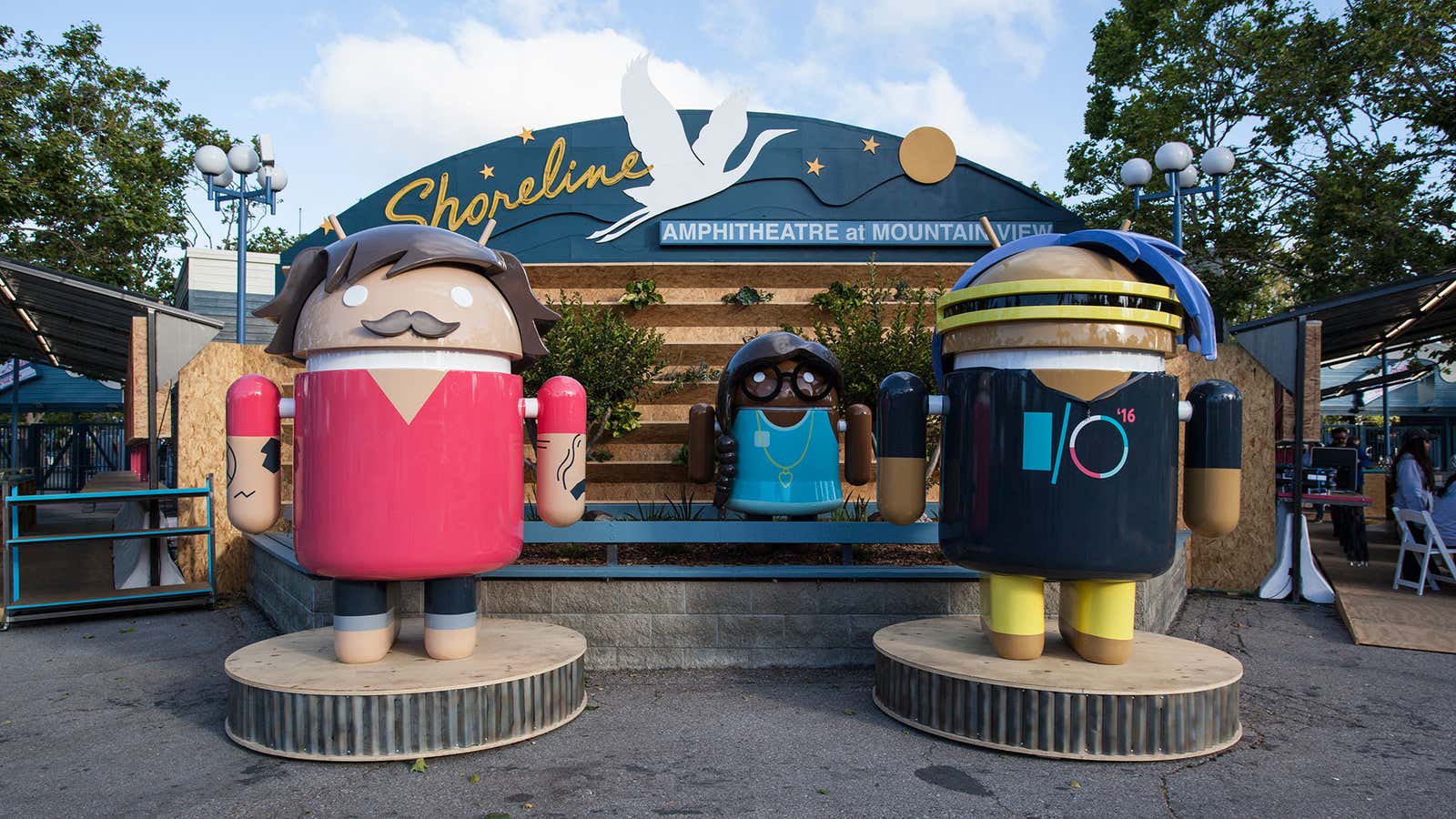Over the years, Google I/O has gained a reputation for splashy product announcements. It was at this developer conference in 2012 the company introduced the world to Google Glass with a live demo by skydivers.
“I used to call it Geek Christmas,” says Forrester’s Michael Facemire, who’s attended Google’s annual conference since 2011. “Now, it feels more like Geek Columbus Day.”
Don’t be fooled by the Project Loon on display, the Charli XCX concert, or the dancing robot’s public art. This year’s conference was undeniably underwhelming.
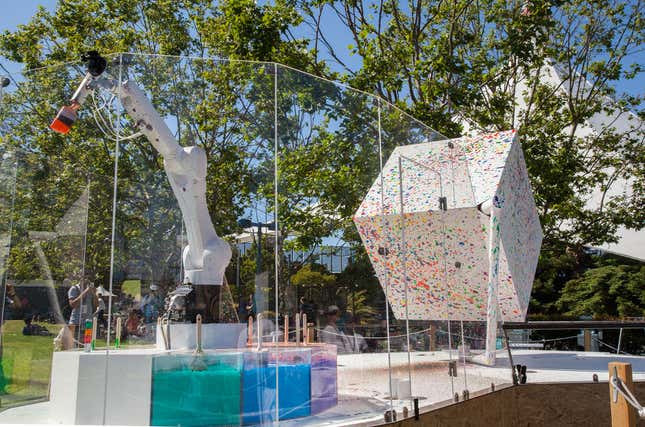
Yes, Google did announce some news at its May 18 keynote. The major highlight was a new chat-based assistant imaginatively named the Google Assistant that will power two other products: Google Home, an Amazon Echo-like speaker that responds to voice commands, and a chat app called Allo.
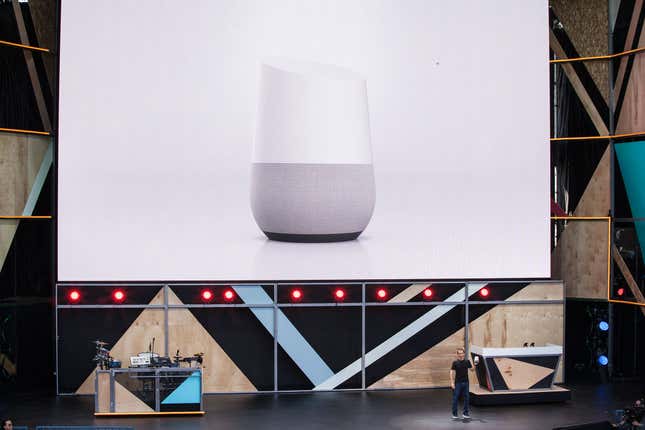
The only thing Google had to show for these announcements were some nice logos, slickly produced videos, and a brief glimpse of Google Home (or at least the shell of it) on stage. But these products were nowhere to be found on the show floor. According to a Google representative, demos for Assistant, Home, and Allo “will not be available until we launch these products.”
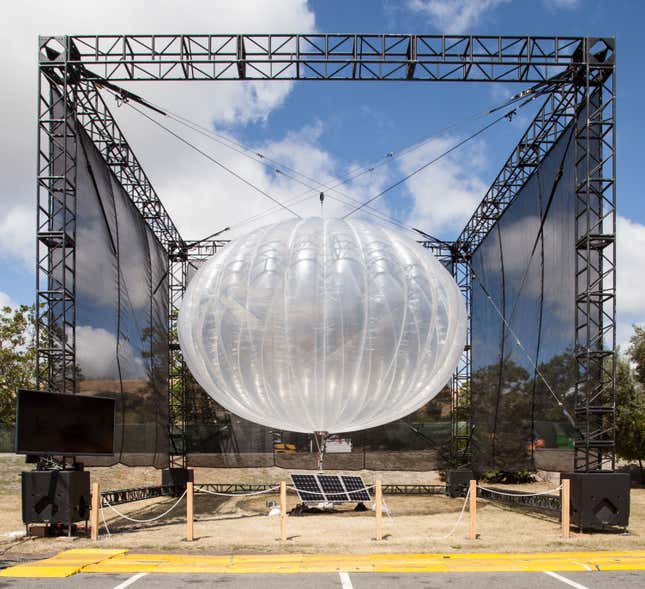
Neither CNET, which prepped a huge profile of Google CEO Sundar Pichai timed to the conference, nor the Verge, which was prebriefed on the announcements, appeared to have gotten any time with these products, though the latter quoted vice president of product management Mario Queiroz describing the Google Home as having “strong bass and clear highs.”
“I’m speculating here,” muses Gartner’s Brian Blau. “If you’re Google, and you know you’re not going to have your stuff ready, what do you do? How do you give a good experience? How do you create anticipation and excitement? Change the venue, talk about the future, appear innovative, and you can kind of do a hand wave,” he says, using his hands to mimic a magician. (The conference moved this year to the Shoreline Amphitheatre, an outdoor concert venue in Mountain View, California, from its usual home at the Moscone Center in San Francisco.)
That in turn lets Google sidestep questions about ship dates and price, he adds. So far, the company’s made vague statements about Allo launching in the summer, and Google Home being available “later this year.” Furthermore, a reference design for a virtual-reality headset and controller won’t be available until the fall.
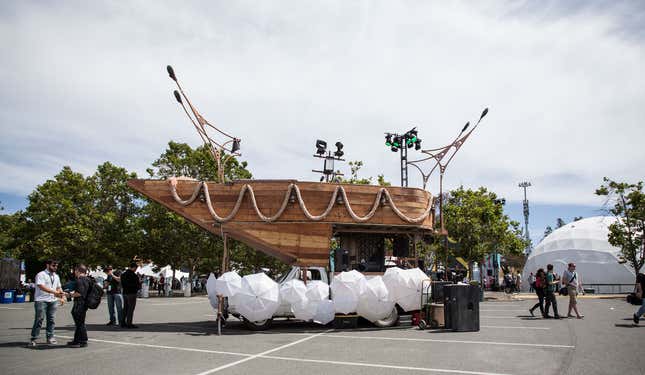
“It’s so unlike Google,” says Facemire. “I won’t use the term ‘remain relevant.’ It’s more than that. But even from a product perspective, they’re playing catch up,” he adds, citing the Amazon Echo (Google Home’s competitor), Wechat and Facebook Messenger (Allo), and video-chat app FaceTime (Duo).
With no new products on hand, everything feels a little nebulous this year.
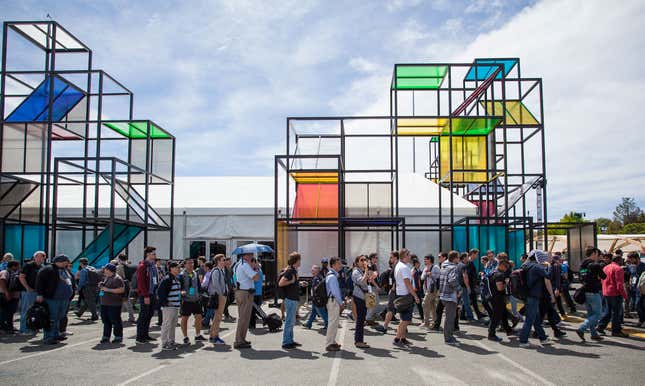
“It is a developer conference, so there is something to be said in giving developers advance notice that new technologies are coming that they should be watching for,” says Avi Greengart, research director at Current Analysis. “But some of these are not aimed at developers. They’re aimed at consumers.” (The Verge reports that Assistant and Home will not have a developer API at launch.)
That’s not to say Google couldn’t pull these efforts off. At various points in its keynote, the company cited its years of experience in organizing information online, natural language processing, machine learning, and artificial intelligence. There’s no doubt Google has the technology, but it appears the company never thought to “productize” it—to borrow Silicon Valley parlance—until it saw what its competitors were doing.
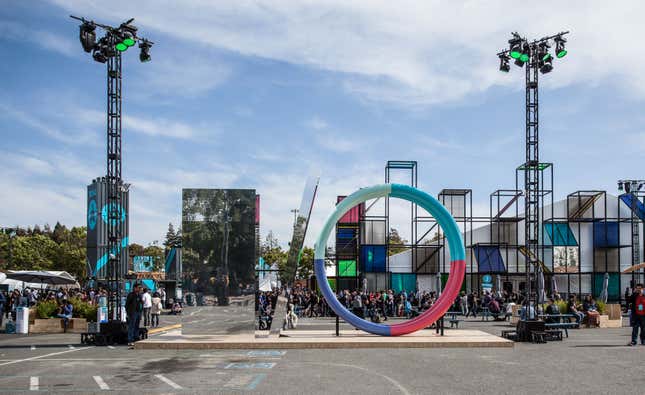
It could also be that Google’s conference is boring now because it’s catering to a different demographic. Back when I/O was Geek Christmas, Facemire says it was a show for media. “What cool stuff will Google do? Who’s going to jump out of a blimp and land on Moscone?” he says. Today, much of the news, such as tools that make building for Google easier, are squarely aimed at programmers. With only glimpses of what’s ahead, I/O is now a “show just for developers,” says Facemire.




